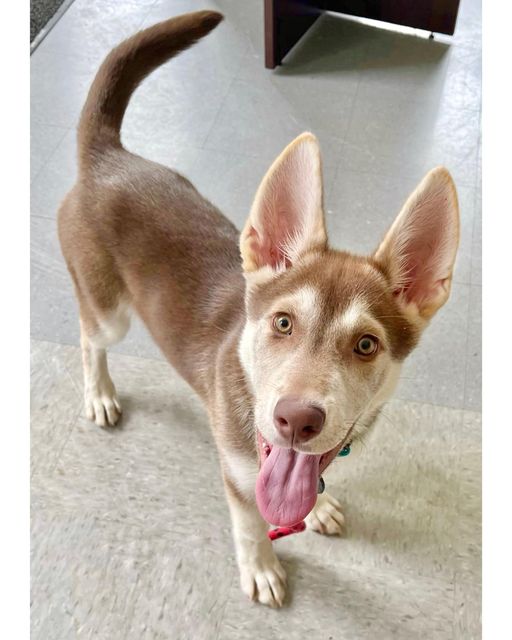A lot of questions are asking by What food is not good for German Shepherds? Or What is worst dog food for German shepherd? The well-being of our beloved canine companions should always be a top priority for any responsible pet owner. Among the various factors that influence a dog’s health, nutrition undoubtedly plays a significant role.
For breeds like the German Shepherd, a strong and balanced diet is crucial to their overall health, vitality, and longevity.

Unfortunately, not all dog foods are created equal, and some options can be detrimental to a German Shepherd’s well-being.
1. Foods with Low-Quality Ingredients
German Shepherds, known for their energetic nature and strong physique, require a diet that is rich in high-quality proteins and nutrients.
Dog foods that list vague or low-quality protein sources, such as “meat by-products” or “animal meal,” should raise red flags.
These ingredients can be difficult for dogs to digest and may not provide the necessary nutrients to support their active lifestyle.
2. Fillers and Artificial Additives
Dog foods that are packed with fillers like corn, wheat, and soy are not suitable for German Shepherds. These fillers offer little nutritional value and can contribute to digestive issues and allergies.
Additionally, artificial additives, colors, and flavors are often used to enhance the appearance of the food. Such additives can trigger sensitivities in German Shepherds, leading to skin problems, gastrointestinal distress, and other health concerns.
3. Excessive Grain Content
While grains can be a part of a dog’s diet, an excessive amount of grains, especially those that are not easily digestible, can be problematic for German Shepherds.
Their diet should primarily consist of high-quality protein sources and healthy fats. A dog food with an imbalanced ratio of grains to proteins can lead to weight gain, reduced energy levels, and potential allergies.
4. Lack of Essential Nutrients
German Shepherds are a breed prone to certain health issues, such as hip and joint problems. As a result, their diet should include nutrients like glucosamine and chondroitin to support joint health. Dog foods that do not contain these essential nutrients can contribute to the development of these health problems over time.
5. Unspecified Meat Sources
Quality matters when it comes to the protein sources in your German Shepherd’s diet. Dog foods that use ambiguous terms like “meat meal” or “poultry meal” without specifying the type of meat can be concerning.
Knowing the specific animal source ensures that your dog is receiving the necessary amino acids and nutrients from a reputable source.
6. High Fat and Calorie Content
While healthy fats are important for a German Shepherd’s coat and skin health, excessively high-fat content in dog food can lead to obesity and related health issues. Overweight German Shepherds are more susceptible to joint problems and can experience a decreased quality of life.
7. Generic or Non-Breed-Specific Formulas
German Shepherds have unique nutritional requirements due to their size, energy levels, and predisposition to certain health concerns. Opting for generic dog food formulas that do not cater to these specific needs can lead to inadequate nutrition and potential health problems.
In conclusion, choosing the right dog food for your German Shepherd is a critical decision that can significantly impact their health and well-being.
It’s essential to read ingredient labels carefully, opt for high-quality protein sources, avoid excessive fillers, grains, and additives, and consider breed-specific formulas or those tailored to their unique needs.
Consulting with a veterinarian or a canine nutritionist can provide valuable insights into selecting the best diet for your German Shepherd, ensuring they live a happy, active, and healthy life.
What is the healthiest food for a German Shepherd?
The healthiest food for a German Shepherd is a high-quality, well-balanced diet that provides all the essential nutrients they need to thrive. Here are some key components to consider when choosing the healthiest food for your German Shepherd:
1. High-Quality Protein
German Shepherds are active and muscular dogs that require ample protein to support their energy levels and maintain muscle mass. Look for dog foods with named animal protein sources such as chicken, turkey, lamb, beef, or fish. Ideally, the protein source should be the first ingredient listed on the label.
2. Healthy Fats
Healthy fats are important for a German Shepherd’s skin health, coat condition, and overall well-being. Look for dog foods that contain sources of omega-3 and omega-6 fatty acids, such as fish oil, flaxseed, and chicken fat. These fats contribute to a shiny coat and help reduce inflammation.
3. Whole Grains and Vegetables
While German Shepherds don’t need a carbohydrate-heavy diet, including some whole grains and vegetables can provide fiber, vitamins, and minerals. Opt for easily digestible grains like brown rice, quinoa, and oats. Vegetables like sweet potatoes, carrots, and peas can also offer nutritional benefits.
4. Joint Support Ingredients
German Shepherds are prone to joint and hip issues, so foods that include joint-supporting ingredients like glucosamine and chondroitin can be beneficial for maintaining their mobility and joint health.
5. Limited Fillers and Additives
Choose dog foods that minimize the use of fillers like corn, wheat, and soy, as these can contribute to allergies and digestive problems. Avoid foods with artificial colors, flavors, and preservatives, as these additives can be detrimental to your dog’s health.

6. Breed-Specific Formulas
Opt for dog foods labeled as “large breed” or “German Shepherd-specific” formulas. These foods are designed to meet the unique nutritional needs of German Shepherds, taking into account their size, energy levels, and potential health concerns.
7. Consult Your Veterinarian
It’s important to consult your veterinarian before making any significant changes to your German Shepherd’s diet. They can offer personalized recommendations based on your dog’s age, activity level, health status, and any specific dietary requirements they might have.
8. Homemade or Raw Diets
Some owners choose to feed their German Shepherds homemade or raw diets. While this approach can work for some dogs, it requires careful planning to ensure that all nutritional needs are met. If you’re considering a homemade or raw diet, it’s advisable to work with a veterinarian or canine nutritionist to create a balanced and safe meal plan.




One comment
Pingback: A Comprehensive Guide to Pet Food Topper Powders